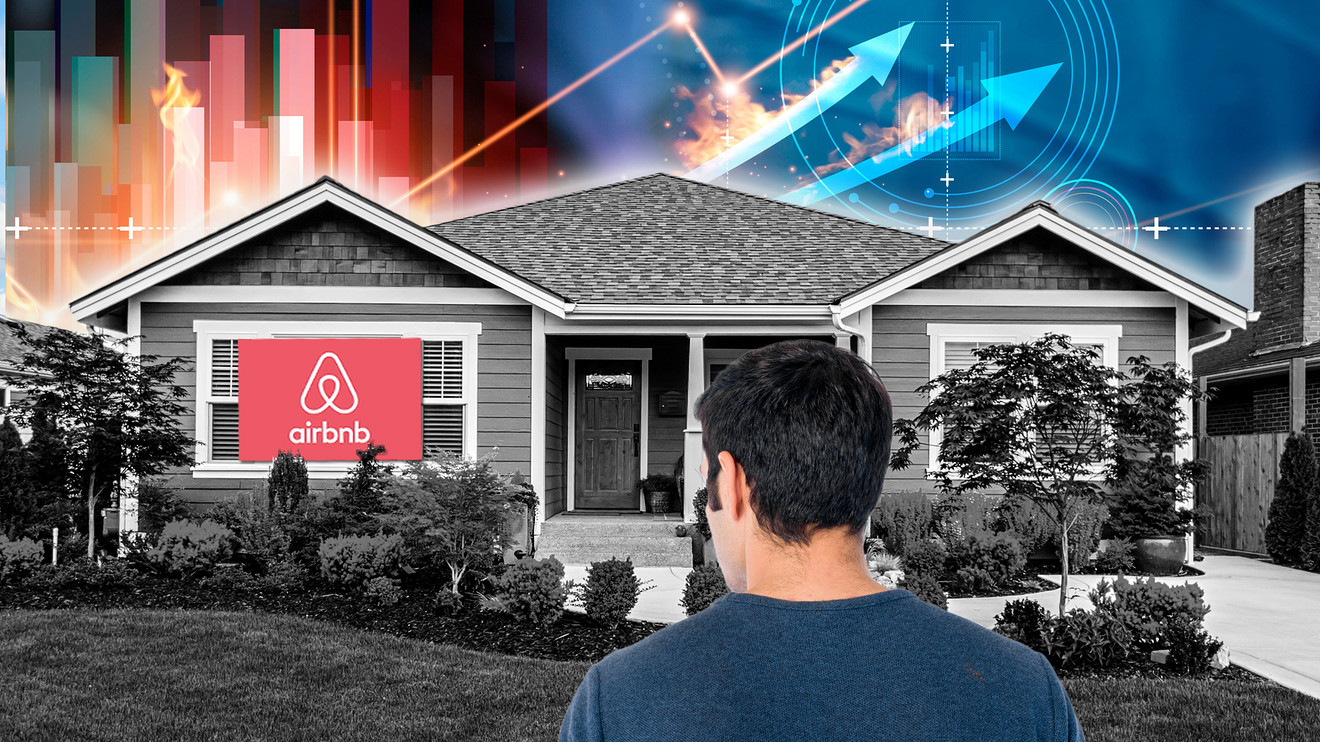
Airbnb is becoming a destination for stock-market cash now that shares of the company have begun publicly trading as of Thursday. But are these newly issued shares of the San Francisco–based short-term-home-rental company a good place to stay for retail investors‘ cash?
That tricky proposition may have become even trickier amid a glut of 2020 initial public offerings that has made initial public offerings ever more tantalizing.
Airbnb opened Thursday at $146, up 114.7% from its IPO pricing level of $68. That is to say that, by the time rank-and-file retail investors had access to the stock, it had doubled in price, and then some. It ABNB, -3.77% ended the day at almost $145 per share, up 113% from the pricing level at which brokerages and favored customers, many of them institutional investors, bought in.
One day earlier came the trading debut of DoorDash DASH, -5.91%, which ended its New York Stock Exchange premiere session with shares up more than 80%. The same day, however, ended with stocks slumping overall. The Dow Jones Industrial Average DJIA, +0.16% dropped 0.5%, and the S&P 500 SPX, -0.13% fell 0.9%.
By Thursday’s market close, DoorDash shares were down roughly 2%, as stock benchmarks again ended slightly lower, reacting to weekly jobless numbers, the status of congressional stimulus talks and the wait for a Food and Drug Administration committee decision on guidance for a coronavirus vaccine authorization.
COVID-19 brings up another question for would-be Airbnb buyers. The pandemic has cut deeply into tourism and left open questions about the travel industry’s prospects for 2021.
An Airbnb spokesman was unable to comment on the business outlook ahead of the IPO, but the company’s own documents filed with the Securities and Exchange Commission acknowledge the existence of question marks, noting that “in light of the evolving nature of COVID-19 and the uncertainty it has produced around the world, we do not believe it is possible to predict COVID-19’s cumulative and ultimate impact on our future business, results of operations, and financial condition.”
Still, the company adds, “we believe that as the world recovers from this pandemic, Airbnb will be a vital source of economic empowerment for millions of people.”
So is Airbnb stock a no-go, worth a flyer, or a solid long-term investment? Financial advisers talked to MarketWatch about what average investors need to consider.
The trip may be bumpy
Anyone who plans to buy to Airbnb should be ready for big price swings, just as with most IPOs, said John Bovard, owner of Incline Wealth Advisors in Cincinnati. Newly offered stocks are often speculative and can be particularly volatile, without no trading track records by definition, Bovard said.
That’s a recently lived experience for Bovard, who bought shares of Palantir PLTR, +0.59%, a controversial software company that started trading publicly in late September. Following some early price drops — by a stock that opened at $10 — shares closed Wednesday at more than $26.60.
Opinion: How Palantir’s early experience in Japan helped set up its successful IPO
“I have experience. It was still nerve-wracking for me,” Bovard said. “The best thing I did was hold on to it.”
If the Airbnb shares at some point decline substantially, “just hang on,” he said. “Just hold on to it.”
Other market experts say it can be easy to fixate on high-profile companies — Tesla TSLA, -2.72% or Uber UBER, -3.16%, for example — but it’s important to check your own tolerance for price peaks and valleys.
When Uber went public in 2019, it started trading on the NYSE at $42. Within months, it had dropped 23%, but then it rebounded — only to drop farther with the March market downturn. The stock is now up 80% on the year, trading in the low to mid $50s this week.
Don’t invest just because you think you know the brand
It’s relatively easy to understand how Airbnb works. After all, more than 4 million hosts have accommodated the arrivals of over 825 million guests since the company’s 2008 founding, as IPO documents note.
But experts caution that knowing a company’s brand and business model and using it as a client are different from understanding its investment risks. Familiarity with and even emotional ties to the brand do not constitute a sound basis for an investment in a company, Monica Dwyer, vice president and wealth advisor at Harvest Financial Advisors in West Chester, Ohio, has told MarketWatch.
Airbnb has its own hurdles, noted Roshani Pandey, founder of True Root Financial in San Francisco. They include the possibility of an array of zoning restrictions that jeopardize short-term rentals, she said, with some cities particularly concerned about the impact of the business on housing affordability for the local population and deleterious impact on the traditional hospitality sector.
To learn about a well-known company from an investing perspective, it’s wise to look at the company’s fundamentals, Erika Safran, the founder and principal of Safran Wealth Advisors in New York, has recommended.
Some crucial investment metrics such as price-to-earnings ratios and revenue-growth figures are lacking for relatively new companies with minimal track records of audited earnings reports and no stock-market history at all, and likewise technical analysis of stock-price action and trading volumes is not on the cards for IPOs.
Still, said Treyton DeVore, a financial planner at Piertree Planning in Kansas City, Mo., you should treat a possible Airbnb share purchase like other stock purchases. “Do your research, look at competitors, and understand what you’re investing in with the thought that quarantine and lockdowns won’t last forever,” he said. “There’s always a lot of hype around IPOs. Don’t let FOMO push you into buying a stock just because everybody else is.”
The journey is long
A retail investor buying Airbnb — or any newly issued stock — should know from the start that investing in an IPO is no get-rich-quick scheme. “The biggest winners in IPOs are generally the early investors who invested in the company before the IPO,” DeVore said.
Even big payoffs that do materialize take time. People who bought up shares of Snap SNAP, +0.34%, the company behind Snapchat, had to wait more than three years even to break even on their IPO purchases, DeVore said. (The company is up 200% in 2020.)
So that’s why a buy-and-hold perspective is vital for anyone who wants to own Airbnb stock, according to IPO and investment experts.
Bovard says he’s bullish on the company, because he thinks the worst is behind it at this point. Nevertheless, investors should only be devoting 10% of their liquid net worth to speculative stocks like Airbnb, said Bovard.
The rest of that money ought to be in diversified index funds and ETFs, he said — “but I do understand people want to invest in something and take a chance at hitting home runs.”
Other advisers say it’s all right to allocate funds set aside as “play money” to such an investment. Jared Friedman, a financial planner at Redwood Financial Planning in Scotch Plains, N.J., told MarketWatch he’ll typically green-light clients devoting 5% of their portfolios to companies that interest them.
With Airbnb, “one approach,” Pandey said, “would be to dip your toes in and buy some stock at the open and consider buying more over time, rather than all at once.”






